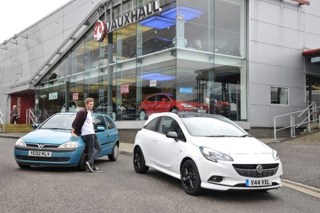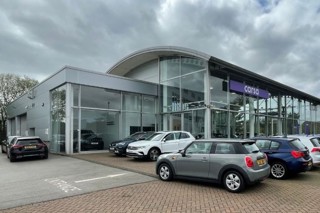Customer expectations around part exchange value are, to this day, a delicate subject matter. Managing them in the right way requires robust internal processes and, more importantly, a deep understanding of people and the reason they behave the way they do.
Let’s face the truth. In the customers minds, as used car retailers, we will always try to “steal” their car at the lowest possible price; we will always give obscure and unsatisfying reasons as to why their car is worth less than they thought it was.
Unless, that is, we collectively begin to shift customer perception by being forthcoming and transparent.
We have to understand that customers need to be walked through and supported. Whichever part exchange valuation we give them, it needs to be fully justified and backed up.
Within the industry, unfortunately, there are still dealers trying to get away with being less than transparent, hence perpetuating this perception of the customer being ripped off.
Aiming to give the highest part exchange value
As far as Imperial Cars is concerned, we’re headed in the opposite direction, and will work as well as we can in each customer’s interest to get them the highest possible trade value.
At the end of the day, the goal is to do a deal and sell the customer a car. If we consistently try to offer the lowest possible value in order to squeeze a couple of hundred pounds of additional profit, we’ll inevitably have lots of customers walking out of the door having not bought our car!
It’s clearly not in our interest for this to happen - nor I believe in any dealer’s - and in many ways a rather short-sighted approach.
Part exchanges can be a great source of stock
It’s worth also considering that every 10 cars we bring in as part exchanges, 3 we’d usually retail back. Those are the vehicles worth offering the consumer more for - because we can see the potential to retail and make some profit off them.
This is why we’ve introduced a process of getting the car valued manually by our underwriting team, instead of relying exclusively on CAP or AutoTrader data.
If the team sees a car which falls within the stock profile we would buy at auction, then we’d obviously want to give the customer as much as possible for it to secure that vehicle, as the car is not only being delivered to our door, but isn’t subject to any buying fees, online fees, or assured fees either.
And regardless of whether we’re sending the car to auction or retailing it through our network, if there’s a good reason to give a slightly higher valuation in order to get a deal over the finish line, why wouldn’t we?
The valuation needs to be fully backed up
It’s not surprising this approach contributes to a positive perception, increasing trust thereby building confidence and the likelihood of closing the deal.
Customers will, most of the time, come in with a value in their mind which is over what they’re really expecting to get, because they think they’ll have to negotiate. But as we’re already trying to get them the highest possible value, the negotiation phase is accelerated and far less onerous for the consumer.
Going through quite a stringent valuation process definitely helps. Each appraisal is carried out via a tablet through our internal system, complete with images, service history, and any other information the sales staff believes is relevant for the underwriting team to give an accurate valuation.
While discussing the valuation we’ll even go as far as showing customers the data set we’re using (either AutoTrader or CAP), and, where applicable, we’ll justify a lower value by tying it back to the damage recorded during appraisal, any gaps in service history, and so on.
In summary
We can’t simply give customers a valuation and expect them to accept it without a reasonable explanation. We can’t afford to lose deals and potential stock by consistently offering the lowest possible value.
Our job - every dealers’s job - is to show customers we’re really, genuinely working for them, not against them. In these difficult market circumstances, that might as well mean the difference between just surviving or seeing your dealership really thrive.
Author: Neil Smith, operations director, Imperial Cars


















Login to comment
Comments
No comments have been made yet.